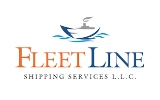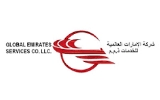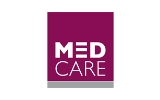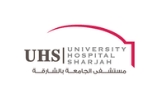ISO 29991:2014 specifies requirements for language learning services outside formal education. These include any language learning services that are addressed to language learners themselves, as well as to interested parties that are acquiring the services for the benefit of learners. The key features of any such service are that the goals of learning are defined and evaluated, and that it involves interaction with the learner. The instruction can be delivered face-to-face or mediated by technology, or it can be a blend of both.
Entities interested in using ISO 29991:2014 will include language learning service providers of all kinds and sizes, as well as associations or consortia of language learning service providers.
In cases where the language learning services are provided by an organization that delivers products (goods and services) or other learning services in addition to language learning services, ISO 29991:2014 only applies to language learning services.

ISO 29991:2014 is not specifically aimed at schools, colleges and universities which provide language learning as part of a formal educational system but may be useful to them as a tool for reflection and self-evaluation.
This International Standard aims to create a universal quality model for learning services. It also acts as a common reference for LSPs and its customers for planning, developing and implementing tutoring and further edification, as well as promoting development.
The standard follows a defined structure to ensure its implementation leads to continual improvement. The standard’s final aim is to declare the implementation of high-quality tutorial programs and processes. The initial point for the development of educational offers is determining individual and company-specific learning needs.
When designing learning services, adequate methods and instruments have to be found and the specific responsibilities of the learner and teacher/instructor must be defined. It is also important to identify instruments for the sustenance and supervision of the learning transfer. The curriculum must take into report modern learning ideas, methods for the promotion of individual learning processes and flexible learning forms.
When rendering learning services, the inclusion of learners, their information and orientation is important for learning success. Learning resources and the learning environment must be adequate to meet learning objectives.
Monitoring is used to verify & compare clearly defined success factors, learning results and the feedback of the learner and other interested parties. It is the foundation for the evaluation and improvement of the learning service.
Requirements: a selection
- Identify and evaluate the learning needs of a person or group;
- Develop suitable learning offers;
- Define learning objectives, contents, and processes;
- Specify measures to support and monitor learning transfer;
- Make available and accessible learning resources;
- Create transparency of services provided and the learning environment for the learner;
- Manage communications and resources;
- Financial and risk management.
ISO 29990 Benefits:
- Customer orientation: focus on the needs of learners
- Documented quality: competitive advantages in tenders and quotes
- Measure and evaluate: ensure the effectiveness of learning services
- Steer: monitor and control the learning processes
- Grow internationally: globally recognized education Standard
ISO 29990: facts and figures at a glance
Certification according to ISO 29990 benefits different types of Learning Service Providers, such as:
- Competitive, private education institutes
- Providers of distance learning courses
- Organizations with in-house training departments
- Academies for further training run by associations or other institutions
- Out-of-school and out-of-university educational programs
- Providers of management and employee training
- Adult education providers
- Private universities and colleges
- Schools, colleges, and universities
This standard serves as an evidence for international marketability of education services. The confusion which was due to various quality models and quality approaches in the field of non-formal education and training had been stopped. Now there are clear processes as well as a clear process orientation. This ISO 29990 standard is becoming a sustainable tool to evaluate and ensure quality capability in the international education market as it offers a customized management system to both tutors and learning service providers. ISO 29990:2010 provides a basis for the implementation of further standards in the education sector. In this respect, works regarding the design of a potential ISO 29991 are in progress.





















